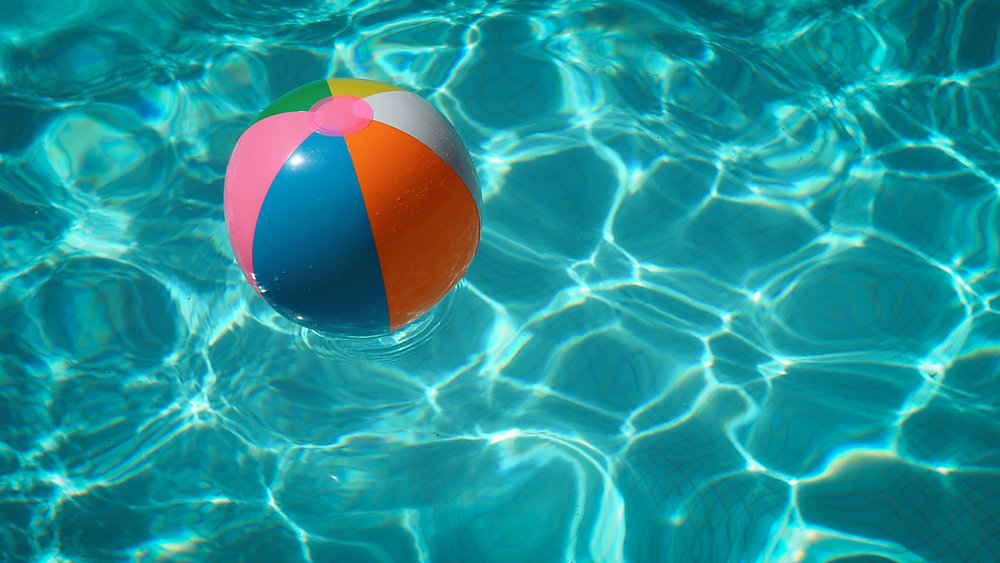First, figure out your reason for putting in a pool - exercise, entertainment, or pure aesthetics? Then consider how much space you'd like it to fill up.
With those things decided, the next big decision is what type of pool will best suit your needs. If you're not sure what your options are, or how to go about picking one, read on for more info on in-round pools.
What are different types of in-ground swimming pools?
Pools are just for swimming, right? Not quite. Nowadays, pools come in a variety of sizes, designs, and shapes tailored to people's needs.
Many of those purposes are not just for swimming. Here are eight of the most common types of pools and what they're built for.
1. Cocktail Pool
A cocktail pool adds a splash of fresh life to your home. As they are smaller than a full-sized pool, you won't need much garden space to fit one in. With all the sliding deck pool covers available from R3TRACT, space doesn't have to be a limiting factor either. Even though they are smaller, they come with all the trimmings of a normal pool.
If you want to add an extra dimension to your entertainment without the hassle of maintaining a super-sized backyard pool, a cocktail pool is your answer.
2. Spool Pool
The name 'spool' either comes from the words spa-pool, or small-pool. Either way, a spool is for lounging rather than swimming. It often includes hot tub features such as jet sprays or lights and can have built-in steps for seating.
While you won't be able to swim for exercise in a spool, it is great for relaxing and costs less to build and maintain than a full-size pool.
3. Lap Pool
Lap pools get their name from their primary function: swimming practice laps. These are perfect if you're looking for a pool that the swimmers in your family can use for exercise.
Not built for social swimming, lap pools are often between 30 and 70 feet long to allow for comfortable training. They come in a simple rectangular shape Built for comfortable turning, lap pools don't usually have a deep end.
As they contain less water, the maintenance costs are less than a regular full-size pool. While not being suitable for family swimming, these pools are great for exercise.
4. Plunge Pool
For those who are undertaking athletic training, a plunge pool offers a great way to cool down and prevent stiffness after training. Plunge pools are usually one depth, 5.5 to 7 feet.
As they aren't meant for recreational swimming, they tend to be on the smaller side, approximately 10 by 15 feet.
5. Endless Pool
This is one of the ultimate pools for upgrading a luxury home. An endless pool is a perfect partner for an exquisite view. The custom-built 'infinity' edge creates an illusion of a waterfall at one end where the water cascades over in a never-ending flow.
Also known as zero edge, negative edge, or vanishing edge pools, these pools are structurally complicated to install but so beautiful and can be fitted with tanning ledges to maximize their luxury.
6. Hot Tub or Spa
Hot tubs or spas are often placed above ground, but installing them in-ground creates a seamless flow of space in your outdoor living area. When it comes to comfort and relaxation, nothing beats a spa. This type of pool includes LED lights, jets, and bubbles, you'll step out feeling fresh and rejuvenated.
Sinking a hot tub in-ground will take extra preparation and planning, but the results will be worth it. You can also add a variety of retractable hot tub covers to complete the addition of a spa to your yard.
7. Architectural Pool
Architectural pools are created to be an integral part of the structure of the home and the landscape design. An architectural pool concept will be designed at the same time as the house. It will harmoniously echo the home when it comes to structural shapes, design, and features.
Having an architectural pool designed and built is an elaborate process that will be expensive but will pay off in the breathtaking beauty of the end result.
8. Natural Pool
A natural pool is an eco-friendly alternative to chlorinated swimming pools. Instead of using chemicals, natural pools use plants to filter the water. Natural pools need a lot of space as there are two areas required. One for the swimming area, and another similar size for regeneration.
The regeneration area is shallow and filled with water, plants and gravel. Pool water is cleaned naturally by being pumped through the area via tubing where it filters through the gravel and aquatic plants.
Most natural pools tend to incorporate boulders and waterfalls into their landscaping. Natural pools are beautiful and unique, though they require a lot of space and are expensive to install.
What Does It Cost to Run an In-Ground Pool?
The cost to run an in-ground pool will vary considerably depending on the size of the pool and what type of pool it is.
The pool's surface and the amount of water you're treating will affect how much chlorine and other chemicals your pool cleaner needs to use.
One of the many benefits of adding a pool cover to your swimming pool are the savings on chemical usage and electricity savings.
What type of in-ground swimming pool is best?
All swimming pools are great. But the best of the best is probably the infinity pool. Imagine an endless pool with the added safety and secure of a bespoke moveable floor, that can operate at any depth.

